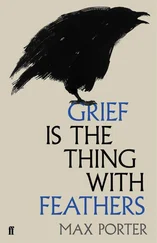“We have the fixings already for a celebration,” Gob Woodhull said brightly, closing the curtains and hiding the stream of visitors passing the house by. “And today happens to be Pickie’s birthday. What shall we do?”
“It’s not my birthday,” said Pickie.
“Certainly it is. I found you on this day one year ago. My boy, you are one year old today!”
“It is not my birthday, and it is not my brother’s birthday,” the boy insisted. Nonetheless, he had a happy party, eating his fill of white cake and red punch. The house became as joyful and carefree as it had previously been sad and nervous. Mrs. Woodhull seemed to forget that Mrs. Grundy had brought a fist down upon her that day. Standing on a chair, she proclaimed how 1872, the year of her predestined election to the Presidency of the United States, would be the greatest year of her life, and the greatest year of all their lives. “This is my year!” Mrs. Woodhull said.
She took Maci aside to confide in her. “My star,” she said. “I know it looks dark now, but don’t give up hope. We’ll bounce back, and bounce higher than anybody expects. I’ve never told you this. I’ve been waiting, and now I am inspired, in this dark hour, to give you the news I’ve been husbanding. I mean to give you a cabinet post, if I arrive in Washington in my destined capacity.”
Maci was flustered. She didn’t think at all how it was almost impossible that Mrs. Woodhull would be elected, or even get very many votes. All she felt was honored, but this soon passed as Mrs. Woodhull distributed promises like party favors. Everybody was a future secretary. Colonel Blood would be Secretary of War, her son the Secretary of Building, and Tennie C. Claflin would be Secretary of the newly established Department of Good Times, from which she would dole out budgets of fun to every despondent citizen.
Maci’s hand drew a picture of Gob Woodhull, a life-sized masterpiece of foreshortening — if she squinted at it she almost believed that his hand, detailed down to the split nails, was reaching out of the paper. She’d lie back and consider the picture, wondering if he and Private Vanderbilt would quarrel if she put them side by side on the wall. Little Dr. Woodhull was stronger than he looked — she’d seen him lift boilerplate as if it were china plate. Her hand attributed that strength to what it called a demispiritual nature, but it was Maci’s belief that the strength of his obsession found its way into his muscles and bones. How many times had her mother lifted up her bedstead in search of a stray bean?
Maci found she could complain to the picture as she could complain to nobody else. Mrs. Woodhull, Tennie, her hand — these all talked back. They all tried to convince her that sanity was unreasonable, but Gob Woodhull’s picture never did that. He smiled, he held out his hand, and that was all. “Isn’t it a burden?” she said to him. “Isn’t it unfair, how I am afflicted with lunacy from the outside and the inside?”
Here are his hands , her own hand wrote on them as it drew, to touch you. Here are his eyes to see you. Here is his mouth to speak you. Tattooed with this primer, he was not clean. Here is his heart, to love you. Maci groaned and looked away when her hand wrote this last thing, fearing it would draw his heart popping out of his chest, as in those gruesome Catholic icons. But her hand only drew a black shadow in his breast.
“Tell me,” he’d ask her, whenever she visited at his house. He’d say it both playfully and plaintively. “I know you can tell me.” He remained convinced that she could help him build up his folly. Maci suggested that a bit of raw iron might be decorated with blue or yellow paint, or suggested arbitrary revisions: “Shouldn’t these three inches of wire be gold, and not silver?” He seemed not to realize that she was mocking him. They were playing like children, piling up stuff into a heap of nonsense. It gave her a wicked sort of pleasure, to think how it was all a waste, and to think how it would gratify her when the giant apparatus failed at everything but being a giant apparatus. But sometimes it made Maci sad, for his sake, to think how he would fail. And, most rarely, she’d think it would be wonderful if this thing could cough out the dead, after all, if even one dead soul could be born again out of its chimney-stack. She even tried to believe this, closing her eyes and straining to see the triumphant spirit of her brother being born back into flesh. But, try as she might, all she could see was darkness.
“Oh, sir,” she said to his picture. “You refine my sense of the ridiculous and the tragic.”
Maci went with Gob Woodhull down to the foot of Roosevelt Street, where the New York tower of the great bridge was going up. Across the river, the Brooklyn tower was already one hundred feet high.
“Isn’t it beautiful?” he asked her. They were there on an errand. Mrs. Woodhull had asked Maci to write an article for the March 8 issue of the Weekly on the progress of the bridge, with an eye to uncover any corruption in its financing that might yet be lingering despite Mr. Tweed’s downfall. Dr. Woodhull had offered to escort her, as the bridge was understandably fascinating to him. He had friends there, and could get her into the bowels of the construction. They walked onto the top of the rising tower, among the workmen with their wheelbarrows, hods, picks, and shovels. Dr. Woodhull put his arms out towards a huge steam crane lifting stone off a barge at the side of the dock, and Maci got the impression that if only his arms had been long enough, he might embrace it lovingly.
“Are you ready to go down?” he asked her, after they had been introduced to their escort, a man named Farrington who was so efficient he shook Maci’s and Dr. Woodhull’s hands simultaneously. He had them put on ankle-high rubber boots.
“Of course,” she said. Dr. Woodhull had offered to go down alone and give her a report, if the thought of doing it herself was too frightening. She went first down the ladder. They were crowded together in a little room lit from above by glass in the iron ceiling.
“This is the air-lock,” said Mr. Farrington. “You’ll be uncomfortable, soon,” he added bluntly, “but do as I do and you’ll come out all right.” Outside a worker was tightening down the roof, and when he was done Mr. Farrington put his hands over his ears. Maci copied his motion too late to block out the piercing shriek that filled the room. “Just the air coming in!” Mr. Farrington shouted.
“A curious sensation!” Maci said, because her head felt as if it were sinking underwater. The sensation was curious, then painful — the pressure felt as if it would crush up her head to the size of her fist. Dr. Woodhull showed her how to relieve the pressure by pinching her nose and trying to sneeze. The sound stopped, all of a sudden, and a hatch in the floor dropped open. The feeling of disagreeable heaviness in Maci’s head had not passed altogether, and as she went down another ladder into the caisson she felt dizzy and a little breathless. Her pulse was racing in her ears, and when she spoke her voice sounded unnatural. Dr. Woodhull’s voice was high as a child’s when he spoke. “Are you well?” he asked.
“I’m well,” she said. “Are you well? I fear you may be too delicate for this place!” She turned away from him to look around at the room into which they’d descended. Her first impression was of flame and shadows and a great noise that managed somehow to sound very loud and very distant; hammers and drills striking rock. Half-naked men were walking everywhere in the steaming light between shadows, and breaking rocks. It looked very much the way Maci expected Hell to look.
Читать дальше












